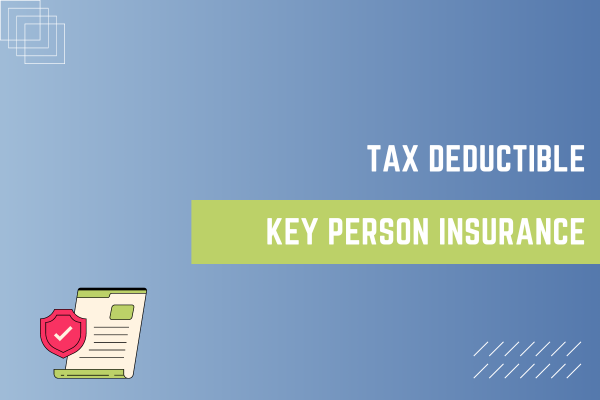What is key person insurance?
Also known as ‘keyman insurance’ or ‘keywoman insurance’, key person insurance is a form of life insurance which protects against the potential losses a business could incur if a key person were to die or be unable to work because of a serious illness.
In the event of a claim, the proceeds are paid directly to the business, helping them to protect profits or reduce debts so they can continue to trade.
Why is key person insurance important?
The death or prolonged absence through illness of a key person in a company can leave a serious gap in leadership, experience, or knowledge.
With a critical member of the team absent, businesses can suffer from a loss of confidence from stakeholders, falling profits, and increased workload for the remaining members of staff.
It’s no exaggeration to say that some businesses would struggle to survive in the short-term without key person insurance to provide a cash injection to help compensate for the loss of their skill, knowledge, and experience.
The money can be used to replace lost revenue, pay debts, or help find and hire a replacement.
Who is a ‘key person’?
A key person is crucial to the business’s day-to-day running and whose absence would cause serious problems.
In most small businesses, the key person is the owner, but it could also be anyone whose skills, knowledge, and experience affect revenue.
The important thing is to consider whether the business could continue if that person died or became seriously ill and how much it would cost to replace them.
Examples of a key person include:
Business owner
Managing director
Operations manager
IT manager
Sales managers and leading salespeople
Employees with specialist skills or knowledge
What does key person insurance cover?
Your business can take out key person insurance for anyone who is crucial to the successful running of your organisation, with cover including:
the death of the individual;
terminal illness;
optional critical illness;
The cover is taken out for a specified term, such as five or ten years, depending on how long you need the cover to run.
There is usually no ‘cash-in’ value to the policy, so if you stop paying the premiums, the cover will cease.
How much key person insurance do I need?
It’s important to consider the potential impact of the key person’s loss, how it would affect your business’s revenue and profits, and what it would cost to replace them.
There are three considerations businesses typically use to calculate the level of cover they require.
Cost of replacement
Some job roles are harder to recruit than others, and you may need to use specialist recruitment agencies and pay additional costs for relocation to attract the right person. You can consider how much this would cost the business and set the cover accordingly.
Formula based on wages
Another commonly used formula would be to calculate up to ten times the key individual’s earnings for the life cover, with a lower figure used for critical illness cover (for example, up to five times their earnings).
Impact on gross or net profits
Another common method is to look at the key person’s contribution to either gross or net profits and how long it would take you to recover that contribution.
For example, a key salesperson might be responsible for 25% of your company’s overall sales, so you will need to factor in the short-term impact while also allowing a period of time for recovery following the person’s loss to the business.
Is key person insurance tax-deductible in the UK?
When you take out insurance to cover a non-shareholding employee, premiums are typically tax-deductible business expenses, eligible for corporation tax relief.
This is because any payout from the policy will be solely for the benefit of the business.
HMRC says:
‘An employer may take out a policy insuring against loss of profits resulting from the death, critical illness, sickness, accident or injury of an employee, director or other ‘key person’.
The premiums on such a policy will be allowable if all the following conditions are met:
The sole purpose of taking out the insurance is the trade purpose of meeting a loss of trading income that may result from loss of the services of the key person
In the case of life insurance policies, they are term insurance, providing cover only against the risk that one or more of the lives insured dies within the term of the policy, with no other benefits. The insurance term should not extend beyond the period of the employee’s usefulness to the company.



